Most garlic consumers ask “Is garlic from China safe?” The answer is yes, it is safe and has many health benefits. China is the largest producer of garlic, but there are some misconceptions about its production. For example, people believe that producers use chemical pesticides or bleach. In this article, we will talk about all misconceptions in detail. We will also discuss whether China garlic is safe or not.
What Are the Misconceptions About China Garlic and Reality?
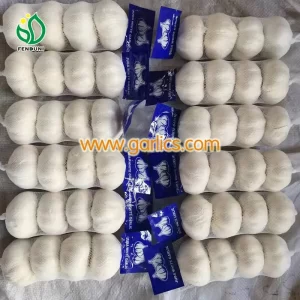
Some misconceptions about China garlic include bulb bleaching, the use of toxic pesticides, and methyl bromide. There is no truth behind these rumors. A type of garlic is so white that it is sometimes confused with bleaching. Moreover, methyl bromide and toxic chemicals are prohibited in China.
1. “Chinese Garlic Is White Because It Is Bleached”
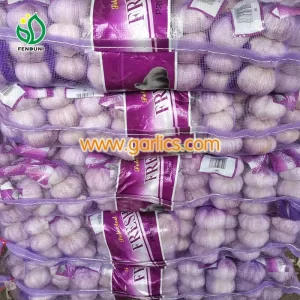
Many people believe that Chinese garlic is so white because the producers treat it with bleaching agents. They believe that the covering of garlic looks so white because of chlorine. Chlorine and other bleaching agents can indeed make garlic look healthier and clean. But it is not a reason behind the white garlic from China.
China produces different types of garlic, and one of them is completely white. Some parts of the world produce garlic with purple or red strains in the white skin. The color is natural, no matter how much you wash or clean the garlic bulb. Similarly, the white color is also natural, and not an outcome of bleaching. You can read more about the difference between white, red, and purple garlic here.
2. “Garlic Is Grown in Filth Specifically Human Waste”
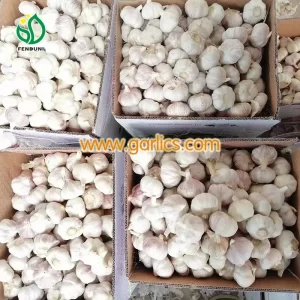
This is another reason why people wonder, “Is garlic imported from China safe?” The soil is clean and free of filth, and the skin protects the cloves. However, people who believe this misconception forget the benefits of organic fertilizers.
More and more countries now prefer human or animal waste over chemical fertilizers. The waste is a rich source of growth nutrients required by plants. On the contrary, using urine to irrigate the land is no less than a rumor. All the garlic fields in China have a proper irrigation system that supplies water to the fields.
3. “Fumigation of Garlic With Methyl Bromide”
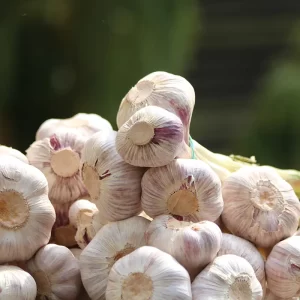
Methyl bromide is a chemical commonly used for fumigation. In the past, many food industries used it to kill bugs or pests before packaging. Now a lot of studies prove its harmful effects on the environment and the health of humans. It is known to deplete the ozone layer and cause nervous and respiratory diseases.
The use of methyl bromide for the fumigation of China garlic is also a misconception. More so now because it was recently banned in China. According to the latest list of banned pesticides, methyl bromide is no longer permitted for use on food products. The regulation clearly states its use only for the fumigation of quarantine facilities.
4. Use of Toxic Chemicals To Cultivate Garlic
The cultivation of garlic by using toxic pesticides and chemicals is another misconception. There are rumors about using high quantities of pesticides and growth inhibitors. But in reality, there is nothing like that. Chinese agriculture prefers organic substances and techniques. Moreover, herbicides are also avoided, as all herbs are hand plucked.
How Is Garlic Grown in China?
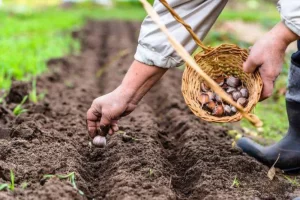
Shandong is the largest producer of garlic in China. Specifically, the greatest contributor is Jinxiang because it meets the ideal growth condition. It has the ideal soil, water, and climate that helps farmers grow garlic in large quantities.
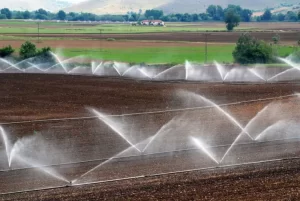
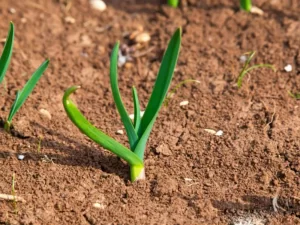
- 1. The texture, fertility, and nutritious value of the soil are incomparable. It is loose and allows better growth of roots. The pH is ideal ranging between 7 to 8 and contains essential elements. The soil has accurate amounts of sodium, calcium, zinc, and other trace elements.
- 2. Farmers use groundwater for irrigation. Most fields have sprinklers that supply the proper amount of water to the soil when it gets dry.
- 3. Garlic seeds are sown in October when the temperature ranges from 12 to 16°C.
- 4. Framers use organic fertilizer to provide all nutrients to the soil. Chemicals and pesticides are also avoided.
- 5. The fields are located in areas with good air quality and the least pollution.
- 6. Genetically modified garlic seeds are not used, and authorities check the farming standards.
Is Garlic From China Safe To Eat?
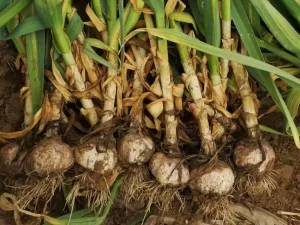
Yes, garlic from China is safe to eat. It is a good source of vitamin C and B6. It also contains some essential elements such as phosphorous, zinc, and manganese. Yet, the most prominent component is allicin which has antibacterial and antifungal abilities.
Garlic is an important ingredient in cooked foods of many regions. Other than that, it is also known for its medicinal properties. Many people believe that garlic treats diabetes, high blood pressure, and other diseases. Some of these beliefs are also scientifically proven. For example, a study shows that eating raw garlic lowers the chances of lung cancer in the Chinese population.
Allicin present in garlic cloves is also known to boost immunity. It is a natural plant-based compound that fights bacteria, fungi, and viruses. It also keeps the heart healthy and maintains the lipid levels in the blood. These effects are only noticed when garlic is consumed raw.
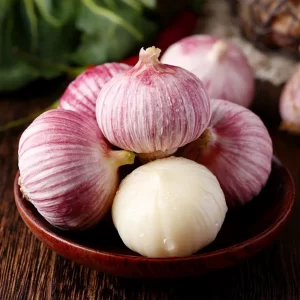
So, if you are wondering, “Is it safe to eat garlic from China?” you should know that it is not only safe but also beneficial. It also has the following benefits:
- 1. Slows aging
- 2. Prevents fatigue
- 3. Helps treat liver failure
- 4. Treats acute bronchitis
- 5. Prevents and treats cancer
- 6. Good for skin and hair health
- 7. Prevents neurological diseases such as Parkinson’s and Alzheimer’s
China garlic is grown in ideal conditions which answers, “Is peeled garlic from China safe?” There is no truth behind the misconceptions about Chinese garlic. The garlic is safe to eat as long as you are not allergic.
خاتمة
Now that you have a clear sense of garlic cultivation in China, you must have the answer to “Is garlic from China safe?” The fields are rich in nutrients, irrigation water is clean and the soil is ideal. Moreover, toxic chemicals are not allowed, and regulatory bodies ensure the quality.
References
- https://www.reach24h.com/en/agrochemicals
- https://www.ncbi.nlm.nih.gov/pmc/articles/PMC4873399/
If you want to learn more Chinese garlic, please contact us.
